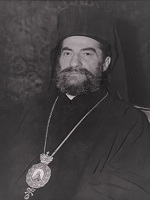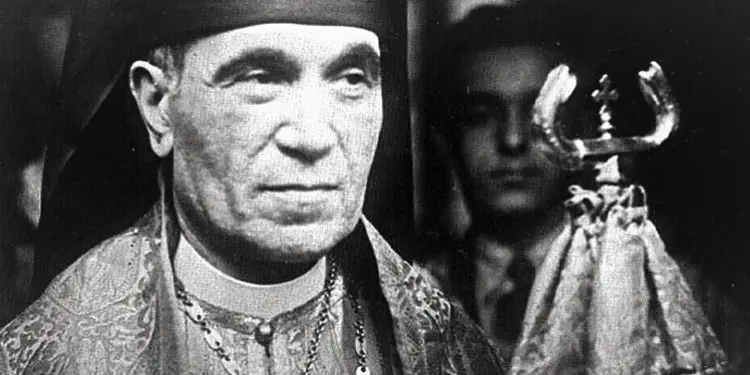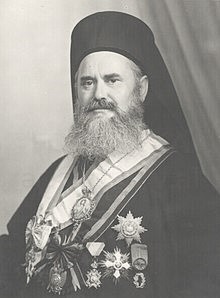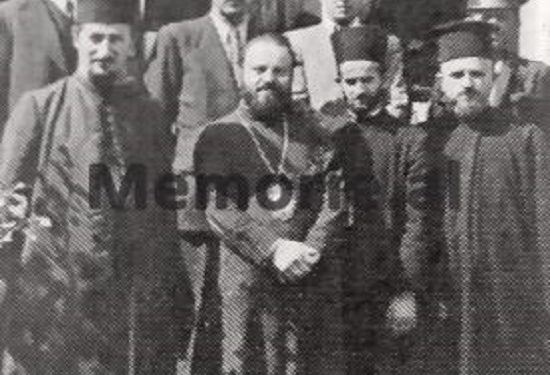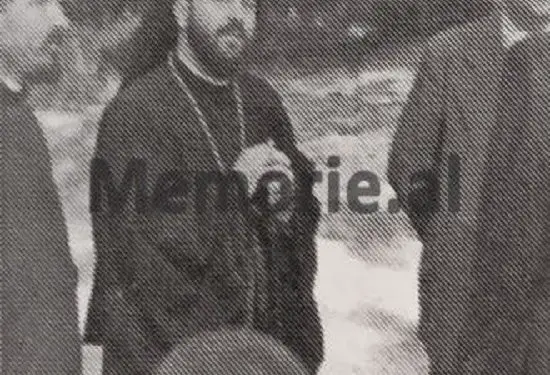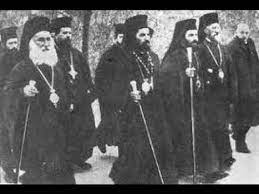From Ylli Pata
Memorie.al / on an unusual day in June, a person sent to Tirana by Fan Noli (his identity is still a mystery), was at the “Dajti” hotel. He had made an appointment that afternoon to meet the former Archbishop of the Autocephalous Orthodox Church of Albania, Monsignor Kristofor Kisin. In the Saint Prokop Church, near the University of Tirana later, where the Chemistry laboratory was located, built with the money of Father Kiss, one of the best scientists in this field. It was 1958. the envoy, it is not known why he went late, very late. Monsignor Kisi, was found dead at dusk under strange circumstances. Apparently, a robbery was staged and the scepter and other liturgical moles, which of course had monetary value, were lost. But Kristofor Kisi goes to the hospital still alive. And a man very close to him testified afterwards that he was left to die. A large laboratory tub had traces of acid and toxic substances.
No light was ever shed on the cause of death, and the descendants of Kristofor Kisi have had it in their minds for years that their man was killed by the communist regime in power. The reason?! Maybe it’s not one. But there is talk of an exchange of letters between Father Kisit and Fan Noli, who was called on more than once by the communist regime to return to his homeland. There are many indications that there was an exchange of letters between the two close friends.
“Father Kristofor, what should I do, come?”, Noli is said to have written to Kis and received the answer: “Do what you have done so far”. This sentence was fatal, as it seems, for the scientist who led the Albanian Orthodox Church. The man who had Autocephaly had not only a project (he was the archbishop who received the decree of the Patriarchate for Autocephaly), but also a goal, for which he fought, worked and finally gave his life.
His Grace, Kristofor Kisi, also negotiated with the Vatican, in order to create a balancing pressure against the impetus coming from the Patriarchate, to cleanse the Albanian Orthodox Church, from the influence of Fan Noli and Visarion Xhuvan. Kisi, even though he came to power as a compromise, never lost contact with his two predecessors, who were not only friends, but also close advisers. At the time Italy invaded Albania,
That Kisi, fought to make a fait accompli, what happens even today with the Arberes of Calabria and Sicily, i.e. an orthodox Byzantine rite of religious rites, but a vertical connection with the Vatican, which was considered better than with the Patriarchate. Maybe he was right, maybe he was wrong. But after this action, the scientist from Berat was attacked by the most occult powers that surrounded him. In the end there was a terrible death and persecution for all his descendants.
But, apart from his history, he left a priceless legacy, his very rich laboratory and library that became the foundation of the Faculty of Natural Sciences of the University of Tirana. But this was never said, not even a hall was named after Professor Kristofor Kisit. Meanwhile, no one, first of all, the Orthodox Church of Albania, remembers this leader. Then the Albanian historiography, which has not shed any light on the great shadow that weighs on this figure, not only of religion, but also of Albanian science and culture.
His Grace, Monsignor Kristofor Kisi, Archbishop of the Autocephalous Orthodox Church of Albania, was born in 1890 in the Kala neighborhood of Berat. Inclined to the spiritual life, he devoted himself to religious studies. He crowned them by graduating from Halki (Hejbeli) Theological High School in Istanbul in 1908. After finishing his studies, he was appointed a professor at Jovan Banga’s gymnasium, in the city of Korça. Before the Balkan War, Archbishop Kissi returned to Istanbul and in 1916, he was ordained a bishop and was appointed to the episcopal see of Makrikoj of Constantinople, staying there until 1923.
That year, a special commission was sent to Istanbul by the Albanian government, with the authorization to conduct negotiations with the Ecumenical Patriarchate about Autocephaly, which failed. After the failure of the goals of this commission, in order to give power to the dialogue and canonical support to these efforts, the Ecumenical Patriarchate intervened, sending an erudite and authoritative bishop, like Monsignor Kristofor Kissi. He left Istanbul and came to Albania and this same year (1923) he was appointed Bishop of Berat.
Together with Bishop Jerotheun, originally from Përmet, who was previously sent as Exarch, by the Ecumenical Patriarchate on November 21, 1923, he ordained Father Fan Nolin as bishop, in the church of Saint George in Korça. In 1929, he retired to the monastery, in order not to participate in the anti-canonical actions that were being carried out. After the resignation of Monsignor Visarion Xhuvan, on May 29, 1936, Monsignor Kristofori agreed to be put in charge of those who wanted the Autocephaly of the Orthodox Church of Albania to be recognized canonically.
On April 12, 1937, the Holy Synod of the Patriarchate decreed the recognition of the Autocephalous Church, and on that same day, Tomos The patriarch was handed over to Monsignor Kristofor Kissi. (On April 16, Monsignor Visarion Xhuvani also asked for and received the Patriarch’s forgiveness and retired to the Monastery of St. John Vladimir). For many years at the head of the Autocephalous Orthodox Church of Albania, Monsignor Kristofori made an enormous contribution to the preservation and development of Orthodoxy in our country.
Thus, in 1942, Archbishop Kristofor Kisi was called to the Lieutenancy by the Viceroy of King Victor Emanuel III, Francesco Jacomoni. He put pressure on the episcopal places, until then vacant, to be appointed at the head of the Orthodox hierarchy of Albania, unitary bishops from Calabria, who depended on the Pope, in an effort to return our entire Church to unity. This proposal, Archbishop Kristofor Kissi, did not accept and immediately called the theologian Ilia Banushi, who had finished theological studies in Belgrade, who agreed to be ordained, taking the name Irine and the title Bishop of Apollonia.
His episcopal ordination took place in the monastery of Saint Naun in the district of Pogradec, which at that time was under the administration of the Autocephalous Orthodox Church of Albania. Bishop of Korça Agathangjel and Mitrofor Father Vasil Marku took part in his ordination. Thus he avoided a great danger for our Church, which the conqueror wanted to impose on it.
Immediately after the liberation of the country, the communist regime removed Archbishop Kristofor Kiss from the position of Head of the Autocephalous Orthodox Church of Albania, because it could not tolerate his authority in the Orthodox Community and isolated him in the church of Saint Prokop, where he remained until he passed away. June 17, 1958, under suspicious circumstances. Memorie.al




